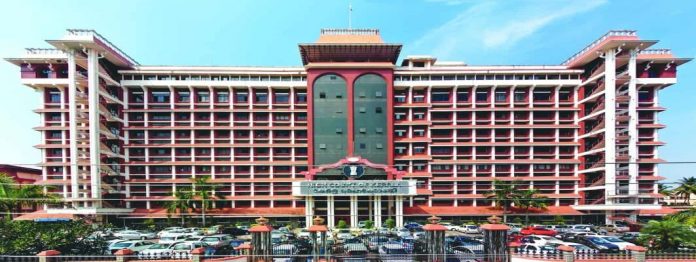The Kerala High Court on Tuesday dismissed the appeals of senior CPI(M) leader P. Jayarajan and other accused in the Kathiroor Manoj murder case.
The division bench of Chief Justices S. Manikumar and Justice Shaji P. Chaly heard the appeal.
An FIR was lodged in the Kadirur Police Station on September 1, 2014 alleging offences punishable under Sections 143, 147, 148, 324, 302, 307 r/w 149 of the IPC, Sections 3 and 4 of the Explosive Substances Act, 1908 and Section 13(a) of the Unlawful Activities (Prevention) Act, 1967, against one Vikraman and a person shown as the photographer and a group of CPI(M) workers.
Subsequently, a report was filed deleting Section 13(a) of the UAPA and adding Section 15(1) r/w 16 of the UAPA. Initially, investigation was conducted by the State Police.
The Court held that what matters for determining the sanctioning authority is the question who controls the investigating agency.
The appellants had argued that since the crime took place in Kerala, the sanction of State Government was necessary for the Special Court to take cognizance of the UAPA offences.
To declare that the authority competent to grant sanction for prosecution of the petitioners in the case arising out of Kadirur Police Station is the Government of Kerala under Section 45(1)(ii) of the UAPA.
The division bench held:
“In our considered view, a reading of the above provisions together would make it clear that it is not the place of occurrence of the crime that matters, but what matters is the agency conducting the investigation under the control of the Central Government and admittedly, in the instant case the investigation is conducted by an agency under the control of the Central Government and the offences under Sections 15 and 16 of the UAPA is incorporated in the final report, and therefore, the sanction issued by the Central Government is a validly constituted one. It is also clear that merely because the central agency conducts an investigation into any offence within the State, it is never under the control of the state government especially due to the fact there is no enabling provision under any one the acts discussed above to do so. Which thus means the central agency conducting the investigation is always under the control of the Central Government and that power under any circumstances is not conferred on the State Government even while conducting an investigation within a state”
The appellants, all CPI(M) members, were challenging the order of Sessions Court, Thalassery, taking cognizance of offences under Sections 16-A read with 15(1)(a)(i) and 19 of the UAPA in respect of the murder of RSS office-bearer Elamthottathil Manoj (Kathrioor Manoj) in 2014. The UAPA offences invoked against the appellants related to ‘terrorist acts’.
Since the case involved the offences under the UAPA, the CBI, with the consent of the State Government, took up the investigation. Subsequently, Central Government accorded sanction for prosecution of these five accused.
Senior Advocates for the appellants, B Raman Pillai and K Gopalakrishna Kurup, placed reliance upon the connotation ‘as the case may be’ in Section 45(1)(ii), to contend that since the alleged incident took place within the limits of the State Government, sanction has to be secured from the State Government and not from the Central Government.
“The validity of the sanction order has to be looked into by the Special Court trying the case in question and definitely, the appellants are vested with sufficient liberty to question the veracity and legality of the sanction order issued by the Government of India,”
the bench observed.
The Court refuted this contention squarely on the ground that for granting sanction to take cognizance under the UAPA Act, it is not the place of occurrence that matters, but investigating agency is what matters.
The judgment stated:
“According to us, a reading of Section 45 itself makes it clear that it is not the area in question that is to be taken into account, in the matter of granting sanction. Because, under sub-section (i) of Section 45(1) though not applicable in the appeals at hand, it is specified that no court shall take cognizance of an offence under Chapter III, without the previous sanction of the Central Government or any officer authorised by the Central Government in this behalf. Chapter III deals with offences and penalties for being a member of an unlawful association and wherever it takes place within the territory of India, a sanction from the Central Government or any officer appointed in that behalf is to be secured irrespective of the investigating agency.”
The Court refrained from examining the merits of the sanction order of the Central Government observing that it is a matter to be decided in the trial.


